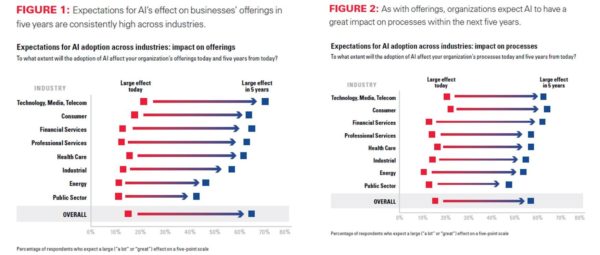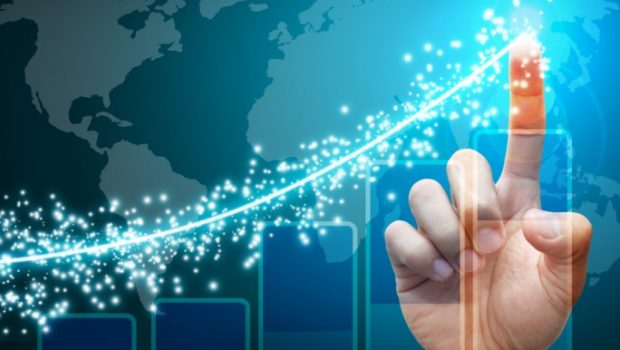Changing Business Landscapes – How latest in technology is affecting the way we operate
Technology has since forever been a dynamic concept but in today’s world, it is changing faster than ever. We are seeing technologies become obsolete within days and keeping pace with this ever evolving space is a challenge every business and even professionals need to face.
Today we stand at the cusp of the fourth Industrial Revolution and all that we knew or thought we knew is changing. And it is only obvious that this will affect the way we operate and go about our business processes.

The last few years have seen remarkable advancements in technology and it has thus become increasingly important for businesses to embrace them with open arms and evolve with them or perish into nothingness.
Artificial Intelligence
AI is often seen caught midst debates whether it is actually a boon or an impending take over by the machine. However, for businesses this is nothing short of a miracle.
Irrespective of whether you like it or not, AI is impacting every industry.
According to the Boston Consulting Group and MIT Sloan Management Review study, 83% of the respondents agreed that AI is a strategic priority for their business today. While some are upgrading their business models to accommodate, a lot have already incorporated artificial intelligence software in their organization in a big way.

Source: https://sloanreview.mit.edu/projects/reshaping-business-with-artificial-intelligence/
Here are few examples of how AI has fundamentally altered our ways and thereby optimizing resources and delivering higher efficiency.
1. Warehouse operations automated
Amazon has revolutionised its warehouses and its operations by employing robots to handle them.
Check out this video to see how humans and robots work together to optimise performance. This has allowed them to make use of their human resource in an improved manner.
Another excellent example is of Ocado and even Alibaba.
2. App development changes
Almost all businesses these days have their own mobile apps. However with AI in the picture the way these apps work could help us in a big way.
Every time you use an app it is tracking what things you show interest for, how and when do you use your mobile phone and offer custom experience based on analysing that data.
If you look at your explore page on Instagram, it is an outstanding example of this. There are no random or generic suggestion on it for you to follow but only selected accounts and posts that its systems have recognized based on your activity, that is why they seem to make sense to you (and you end up wasting hours on it, come on!).
This, and new devices such as wearables hitting the market, has altered how app developers are viewing their task now and can no longer stick to standard ways. (Applify is driven to reinvent itself to stay relevant to the fast changing app development landscape).
Big data
Data is the most important asset for any business. Irrespective of its size, every business is generating and collecting data. With the digital footprint growing every minute, it becomes more than important for companies to have a plan and strategy to deal with Big Data.
1. Customer Experience
Big Data has helped businesses to serve their customers better by allowing them to curate customised experiences and enhance a standard way to read messages. It allows them to get valuable insight into customer behaviour and enhance the user experience.
John Deere exhibits this arvel in the field of agriculture. Its tractors ‘generate highly actionable prescriptions for farmers to drive better yields, cut waste, and improve product quality. Every seed, air droplet of fertilizer, irrigation step and turn of a tractor can now be guided by data.’ Find the case study insights here.
There is also a notable shift in data collection platforms, with high mobile penetration rates across the world, apps have become a major node for data analytics.
2. Internal Operations
A lot of organisations are making use of big data to streamline, automate and reorganize their internal processes. Supply Chain Management has undergone a revolution with its introduction. Now, with sophisticated big data analytic tools available, various human-to-human interaction dominated operations like Human Resource Management are also evolving, which had largely stayed the same since decades. Automating recruitment processes (to quite an extent), tracking employee performance are such examples where Big Data has proved to simplify tasks.

Source: https://infocus.dellemc.com/william_schmarzo/leveraging-big-data-to-transform-your-business-model
But one significant challenge that has come up with is user privacy. With renowned cyber giants like Facebook and Microsoft coming under the scanner for having compromised the privacy of its millions of users, firms can not afford to ignore this aspect and jeopardize their reputation. Therefore, privacy matters are now needed to be a major part of any business’s digital strategy be it app development or social media marketing.
Geoinformatics
We know that no developmental activity can take place without considering geospatial data. Governments extensively use this for urban and rural planning and better targeted delivery systems.
As a subset of Big Data , geoinformatics is no less useful for the businesses too. Not just mobility and delivery Apps like Uber, Lyft etc.use it but various businesses are incorporating geo data into their decision making processes and the applications associated with these systems range from infrastructure management, vehicle routing, site selection, to research and analysis.
Firms are increasingly using geospatial technology to expand the scope of business intelligence and optimize their results.
GPS or LBS technologies are now being integrated with wireless data solutions to provide capabilities like tracking overtime and enforcing policies related to it, best management of field workers, getting a real-time status update for services and asset protection. Hence, app developers can no longer ignore the geospatial aspect while designing apps.
Blockchain
Few years back Bitcoin and cryptocurrency in general too the world by a storm. However, the technology behind it is no longer limited to cryptocurrencies alone.
Blockchain is a decentralized ledger in the public domain that means no transactions are hidden but the identities are kept private through high level encryption.
‘The technology can be used to develop blockchain applications, such as social networks, messengers, games, exchanges, storage platforms, voting systems, prediction markets, online shops and much more. In this sense, it is similar to the internet, which is why some have dubbed it “The Internet 3.0” says, Lisk Academy.
Blockchain allows transactions to run more smoothly and efficiently and remove intermediating agencies and hence reinventing key business processes.
According to an IBM study, a third of executives are using or considering blockchain for their business. The latest in this are the Decentralised Apps or DApps in which the server-client model is distributed unlike normal apps.
The traditional ways of businesses are no longer competent enough to face the storm of changing technology. It is upto businesses to step up their game and make the most of such latest advances and weave success stories.
No ‘disruption’ ever came without technology and this decade proves to be a golden opportunity for businesses to capitalise on these advancements and evolve.
Author bio:
Snigdha Sachar is an engineer by qualification, writer by profession, tech and policy enthusiast by passion and chai-advocate as a freelancer. Follow her on LinkedIn.















